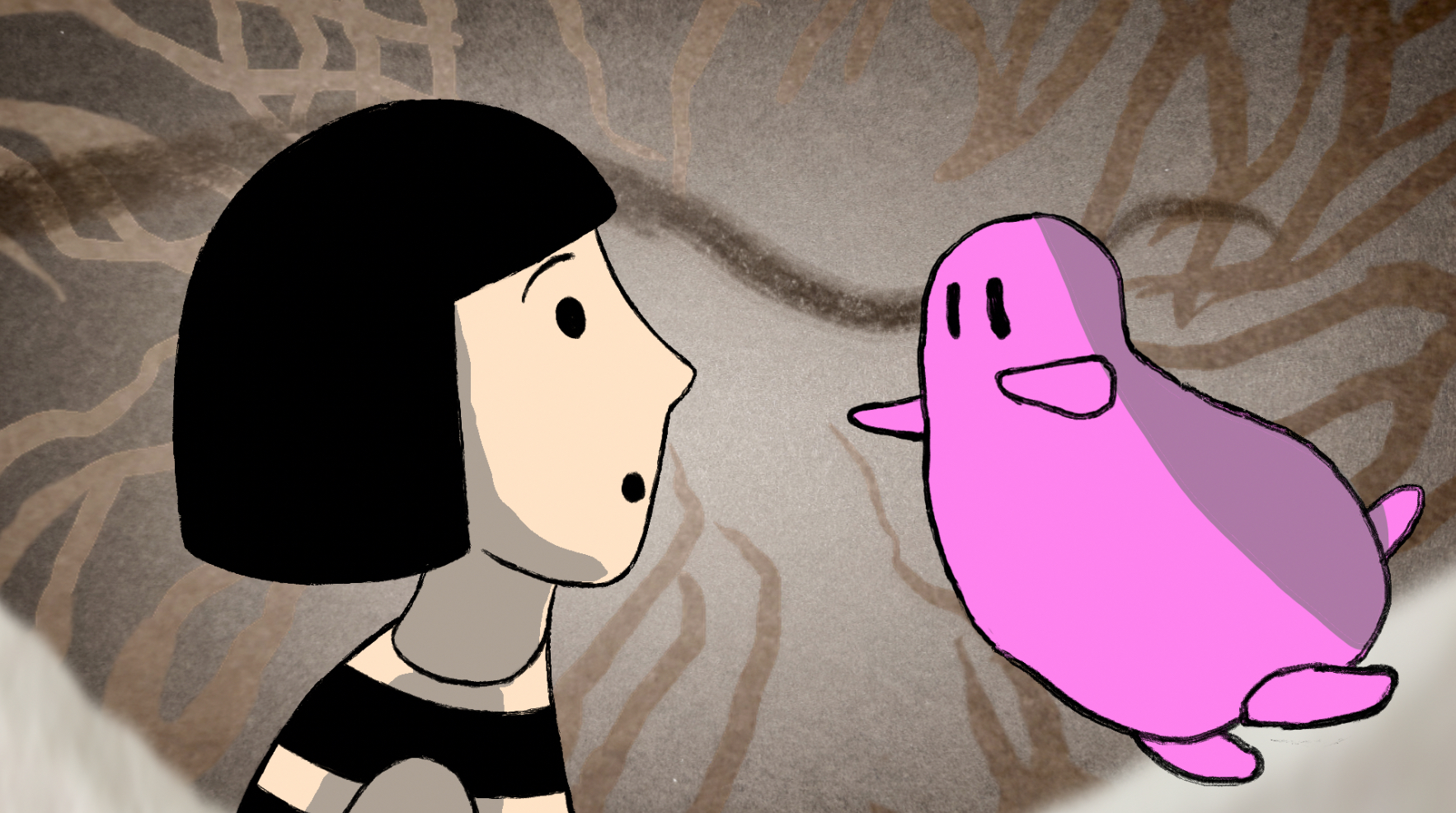
Science inspired fairytale A Language of Shapes launches on International Microorganism Day
Online Launch: Saturday 17 September 2022, 5am (BST) / 12am (EDT), for 48 hours on Labocine.com
Live Public Events: Friday 14 October 2022, Discussion 6:30-8pm, Outdoor projection 7-9pm, London School of Hygiene & Tropical Medicine
In celebration of #InternationalMicroorganismDay, we are sharing online A Language of Shapes, a fairytale about the microscopic world of dysentery. This short film by animated documentary maker Samantha Moore, is based on the scientific research of the Mostowy Lab at London School of Hygiene & Tropical Medicine (LSHTM) and has been developed with the lab team.
Serge Mostowy and Samantha Moore previously collaborated with Animate Projects on the production of award-winning, animated documentary Loop (2016) for Animate’s Wellcome Trust supported project ‘Silent Signal’.
Professor Serge Mostowy said: “Working with Samantha has been transformative. Her animations are important legacy tools for our research, documenting our discovery process since my lab started in 2012. Visual storytelling is opening up our science to a broader non-scientific audience, and these experiences are in turn helping to shape my team and research agenda.”
We are delighted to partner on the film’s presentation with Labocine.com, a singular platform that showcases science in cinema and works to both create and spotlight synergy between scientists and artists. Alongside the film, there will be a special commentary video with Samantha Moore and Serge Mostowy discussing the science at the heart of the film.
Following this, on 14 October, we will be projecting the film onto the exterior of the LSHTM Keppel Street building, in order to make the research taking place within the building accessible to a public who would otherwise not set foot within its labs. At the same time, there will be a live discussion event with the lab team and Samantha Moore taking place within LSHTM, which will be an opportunity for anyone curious about the project to come along and ask questions of the collaborators about the research and the creative process. The project features as part of the opening night celebrations of the engaging Bloomsbury Festival, which celebrates arts, culture, and science in collaboration with organisations and communities in the Bloomsbury area of London. The event is also supported by our installation partner, Guildhall Live Events.
In the film, Emi, a young girl with a stomach upset, enters the magical, microscopic world inside a zebrafish and aids the defenders of her cells to outwit the invading Shigella bacteria. At a time when there is increased anxiety around the viral attack on our cells by Coronavirus and Monkeypox, this enchanting fairytale film decodes and celebrates scientific research in the Mostowy lab using Shigella and zebrafish. In an accessible and engaging way, it aims to convey to a family audience, cutting edge research about how our cells defeat invading pathogens, and how these scientific discoveries can improve wellbeing and save lives around the world.
Alongside the production of the film, the collaborators have also engaged a range of people from across the UK and internationally. They have worked with students at Central Saint Martins, Manchester Metropolitan University, and Volda University College on running creative workshops for young people online, thematically inspired by the research. They also ran a workshop for LSHTM’s Young Scientist programme, enabling a group young people from London state schools interested in careers as biomedical researchers to learn more about visual storytelling.
Already this year, the film has been presented at Einstein’s Garden at Green Man Festival and at Sydney Science Fiction Film Festival in Australia, with more festival screenings to be announced in the coming months.
A Language of Shapes is a film by Samantha Moore, based on the research of the Mostowy Lab. Produced by Animate Projects and supported by a Wellcome Trust Research Enrichment Grant and by the London School of Hygiene & Tropical Medicine.
